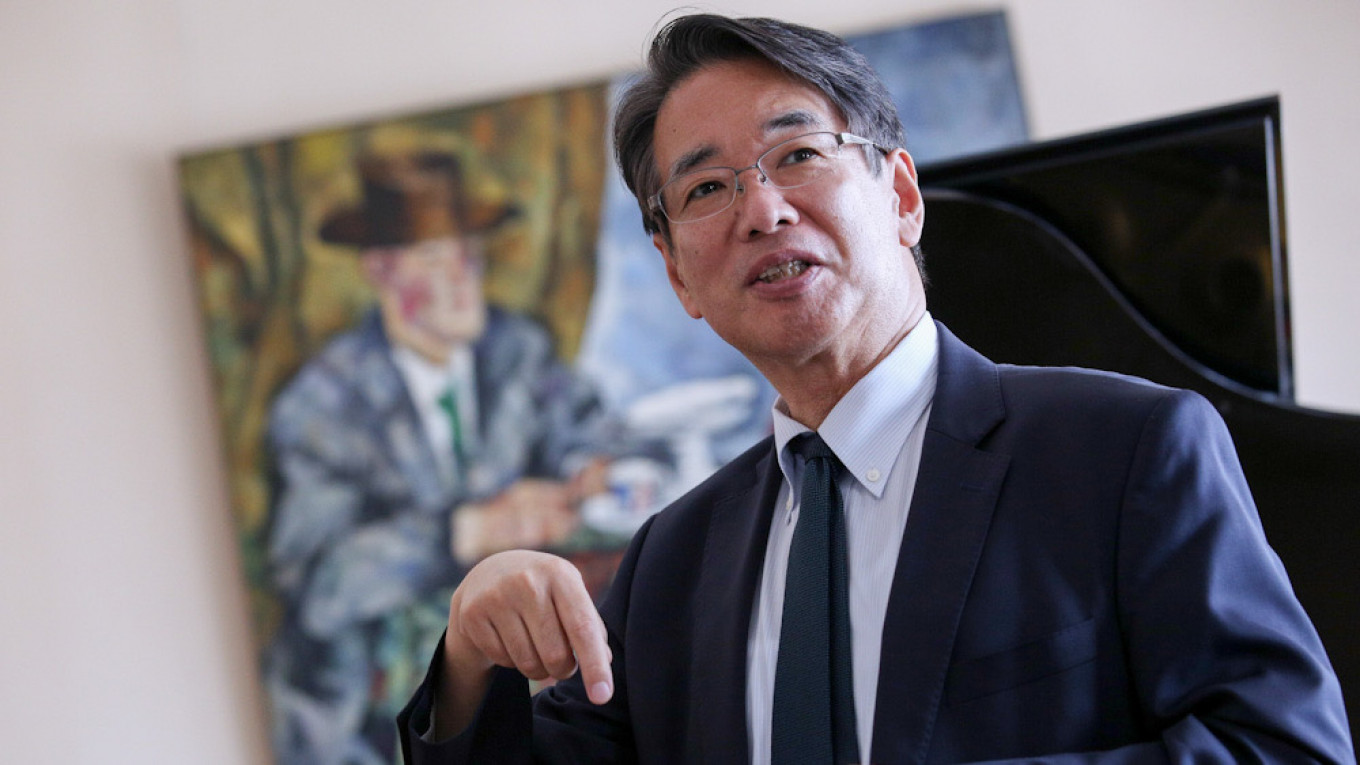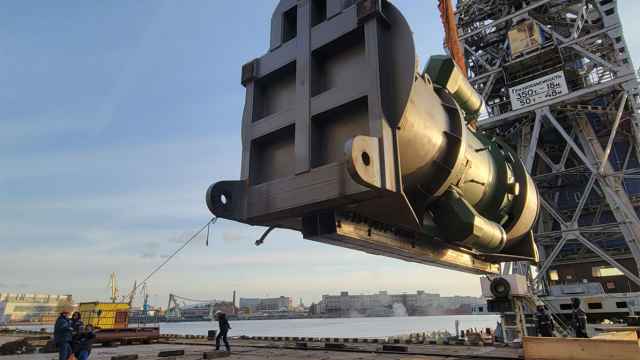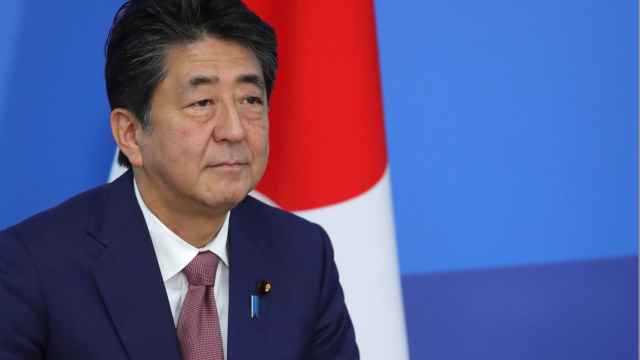Japan has offered to cooperate on Arctic shipments and agricultural imports from the sparsely populated Russian Far East, the state-run news agency RIA Novosti reported Monday.
The “new concept of cooperation” comes amid Tokyo’s years-long efforts to return a disputed Pacific island chain that Moscow has held since the end of World War II.
According to RIA Novosti, Japan’s Ambassador in Moscow Toyohisa Kozuki sent the proposal to Russian Far East and Arctic Minister Alexei Chekunov detailing several areas of cooperation.
Among them is taking an “active part in the development” of Russia’s highly touted Northern Sea Route (NSR) project that cuts shipment routes and is becoming available year-long due to rapid thawing in the Arctic region.
“Ambassador Kozuki pointed out that the NSR logistic was 40% more effective than the traditional sea routes,” RIA Novosti’s Arctic.ru project reported.
“Japanese companies already transport LNG via this route,” it added.
The sides reportedly met to discuss Japan’s proposal for energy, transportation and port infrastructure cooperation, as well as soybean and maize imports from Far East Russia and joint work in fishing and kelp cultivation.
Japan is also seeking to work with Russia on building greenhouses to grow strawberries, onions and other vegetables.
The dispute over the Russian-held islands, which Russia calls the Kurils and Japan claims as the Northern Territories, has kept the sides from striking a formal peace treaty to end World War II.
A set of constitutional changes enacted by President Vladimir Putin last summer includes a clause banning territorial concessions, which is viewed as being designed to allow Russia to keep the Kurils and Crimea.
A Russian state-funded poll in early 2019 said that 96% of the islands’ adult population opposed ceding the islands to Japan.
A Message from The Moscow Times:
Dear readers,
We are facing unprecedented challenges. Russia's Prosecutor General's Office has designated The Moscow Times as an "undesirable" organization, criminalizing our work and putting our staff at risk of prosecution. This follows our earlier unjust labeling as a "foreign agent."
These actions are direct attempts to silence independent journalism in Russia. The authorities claim our work "discredits the decisions of the Russian leadership." We see things differently: we strive to provide accurate, unbiased reporting on Russia.
We, the journalists of The Moscow Times, refuse to be silenced. But to continue our work, we need your help.
Your support, no matter how small, makes a world of difference. If you can, please support us monthly starting from just $2. It's quick to set up, and every contribution makes a significant impact.
By supporting The Moscow Times, you're defending open, independent journalism in the face of repression. Thank you for standing with us.
Remind me later.






